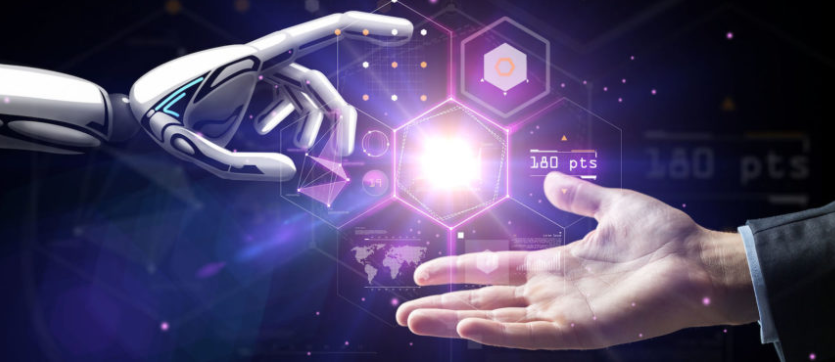Artificial intelligence (AI) is both immensely exciting and somewhat uncertain. On the one hand, businesses and individuals are beginning to reap the benefits of AI-powered technologies like never before. On the other hand, as AI continues to evolve and become more sophisticated, there is a risk of it becoming uncontrollable and even dangerous. In this blog post, we will explore some of the ways in which AI is already shaping our world, both for better and for worse. We will also consider what the future may hold for AI, and whether or not we should be worried about its potential impact on humanity.
What is artificial intelligence?
Artificial intelligence (AI) is a term used to describe a computer system that can learn and work on its own, making decisions based on data.
It’s a hot topic in today’s world, with businesses and individuals alike wondering what the future of AI holds.
For businesses, AI can be used to automate tasks, freeing up employees to work on more high-level tasks. It can also be used to make better decisions by analyzing large amounts of data.
For individuals, AI is becoming more prevalent in our everyday lives. We are using virtual assistants like Siri and Alexa to perform tasks for us, and self-driving cars are slowly becoming a reality.
The future of AI is an exciting one, with endless possibilities for how it can be used to improve our lives.
What are the different types of artificial intelligence?
Artificial intelligence comes in many different shapes and sizes. There are broadly four different types of AI:
Reactive machines: Reactive machines are the simplest form of AI. They are able to respond to environmental stimuli but cannot form memories or make predictions about the future.
Limited memory: Limited memory AI can remember and use past experiences to inform future decisions. This type of AI is used in self-driving cars, which need to be able to recall past events (such as road conditions, traffic patterns etc.) in order to make safe decisions.
Theory of mind: Theory of mind AI is able to understand and simulate human emotions and social interactions. This type of AI is still in its early stages but has great potential applications in fields such as healthcare and customer service.
General artificial intelligence: General artificial intelligence is the most advanced form of AI, characterized by its ability to learn, reason and solve problems like a human. This type of AI is still very much in development and is not yet widely used in commercial applications.
What are the pros and cons of artificial intelligence?
When it comes to artificial intelligence (AI), there are both pros and cons to consider. On the one hand, AI has the potential to revolutionize many industries and make our lives easier. For example, self-driving cars could reduce accidents, speed up transportation, and free up our time. Similarly, AI-powered chatbots could provide customer service 24/7 without getting tired.On the other hand, there are also some drawbacks to using AI. One worry is that AI could lead to mass unemployment as machines replace human workers in a wide range of jobs. Another concern is that AI could be used for evil purposes, such as creating autonomous weapons or hacking into systems. Additionally, as AI gets smarter, it may become difficult for humans to understand or control it, which could create unforeseen problems down the line.
Overall, there are both positive and negative aspects to artificial intelligence that should be considered before implementing it on a large scale. While it has the potential to improve our lives in many ways, we need to be aware of the risks involved so that we can mitigate them as much as possible.
How will artificial intelligence impact the future?
Many experts are predicting that AI will have a profound impact on our future world. Here are some of the ways that AI is expected to impact the future:
1. Job Losses: One of the most commonly cited concerns about AI is that it will lead to mass job losses as machines increasingly automate tasks that humans currently perform. While it's true that AI will likely displace some jobs, it's also expected to create new job opportunities in fields such as data analysis, machine learning, and software development.
2. Improved Health Care: AI has the potential to transform health care by providing early diagnosis of diseases, personalized treatment plans, and improved patient care. For example, IBM Watson's Oncology Advisor is already being used by doctors to help identify cancer treatments based on a patient's individual characteristics.
3. Smarter Cities: AI-powered systems can be used to optimize city infrastructure and services such as transportation and energy use. For instance, traffic lights could be adjusted in real-time based on traffic conditions, and buildings could be automatically heated or cooled based on occupancy levels.
4. Enhanced Security: AI-based security systems can be used to protect against threats such as terrorism, cybercrime, and natural disasters. For example, facial recognition technology can be used to identify potential criminals or terrorists, and predictive analytics
How can we prepare for the future with artificial intelligence?
We can prepare for the future with artificial intelligence by taking advantage of its ability to identify patterns and trends. For example, we can use AI to monitor data sources for changes that might indicate an impending natural disaster, social unrest, or other event. We can also use AI to develop plans and strategies for responding to these events. Additionally, AI can help us identify and track potential risks and hazards so that we can avoid them in the future.
Conclusion
AI will change the world as we know it, and its impact will be felt across all sectors of society. As we continue to explore the possibilities of this technology, it's important to remain mindful of its potential risks and pitfalls. With that said, the future of AI looks bright, and I for one can't wait to see what tomorrow brings.









0 Comments